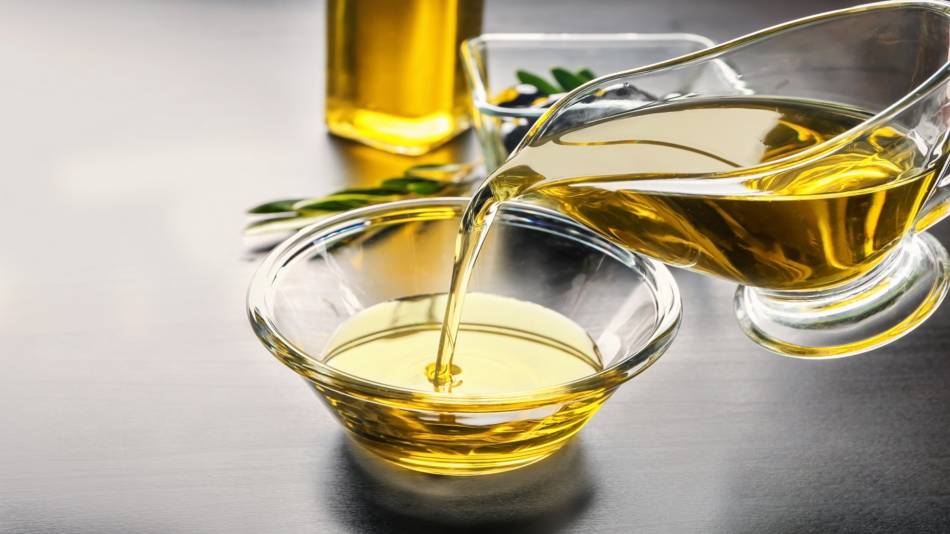
Answer:
Olive oil is high in monounsaturated "healthy" fats (due to its high concentration of oleic acid) and, depending on the oil, may be rich in antioxidant polyphenols. Olive oil can help lower blood pressure, improve cholesterol levels and control insulin levels in the body. It may also reduce the risk of certain types of cancer.
Here we'll discuss some of the details drawn from ConsumerLab.com's Extra Virgin Olive Oils Review, which includes our Top Picks among extra virgin olive oils.
Health Benefits
Safety
Quality
Healthy Cooking
Health Benefits
Olive Oil and Cardiovascular Disease:
Limited research suggests replacing some saturated fat in the diet with olive oil may help lower risk factors for heart disease, such as high blood pressure and high cholesterol. The FDA allows pure olive oil products to claim:
"Limited and not conclusive scientific evidence suggests that eating about 2 tablespoons (23 grams) of olive oil daily may reduce the risk of coronary heart disease due to the monounsaturated fat in olive oil. To achieve this possible benefit, olive oil is to replace a similar amount of saturated fat and not increase the total number of calories you eat in a day." (FDA 2004)
For example, one observational study found that the risk of heart attack in men and women was 82% lower for those who regularly consumed about 4 tablespoons of olive oil per day, compared to those who consumed less than a half tablespoon per day (Fernandez-Jarne Int J Epidemiol 2002).
In a large study of men and women at high risk for cardiovascular disease, those who consumed a Mediterranean diet supplemented with 4 or more tablespoons of extra-virgin olive oil per day had a 30% lower risk heart attack, stroke or dying of heart disease after five years compared to a control group who consumed a similar diet (but which was somewhat lower in fat) and who were discouraged from consuming more than 2 tablespoons of olive oil per day (Estruch, N Engl J Med 2013).
A small, 6-month study among men and women with mild to moderate high blood pressure found that those who consumed several tablespoons of olive oil (4 tablespoons for men, 3 tablespoons for women) and slightly reduced their intake of saturated fat were able to reduce their dosage of blood pressure lowering medication by 48% compared to those who instead, consumed safflower oil (Ferrara, JAMA Int Med 2000).
Another small clinical trial suggested that the type of olive oil may matter. A study in healthy men compared olive oil high in antioxidant polyphenols (366 mg/kg or ppm) vs. one low in polyphenols (2.7 mg/kg). For three weeks the men consumed a little less than 2 tablespoons per day of one of the oils. Consuming the high polyphenol olive oil, LDL "bad" cholesterol particles decreased by 11.9%. Consuming the low polyphenol olive oil actually increased small LDL cholesterol particles. The study did not include a placebo (Hernaez, J Nutr 2015). Generally, extra virgin oils contain the highest levels of polyphenols -- about 100 to as much as 500 ppm (Garcia, Eur Food Res Technol 2003), although oils with levels of about 400 or higher may be very bitter (Agbiolab).
A 3-month study in which extra virgin olive oil (EVOO) (25 mL, or about 5 teaspoonfuls, per day) was substituted for other cooking oils in a typical American diet in obese older adults in Boston found that it reduced blood pressure (systolic blood pressure decreased 6 mmHg on average) and tended to increase HDL "good" cholesterol. In addition, increased oleic acid levels in the blood were found to be associated with increases in IL-2 production (suggesting improved immune function, although not an anti-inflammatory effect) (Rozati, Nutr Metab (Lond) 2015).
Lower Risk of Cancer With Olive Oil:
A study of postmenopausal women in Spain found that eating a Mediterranean diet supplemented with olive oil (extra virgin; 1 liter per week for each woman and her family) for about 5 years was associated with a relatively lower risk of breast cancer (1.1 cases per thousand women) in comparison to 2.9 cases per thousand among for women only advised to follow a low fat diet. Eating a Mediterranean diet supplemented with mixed nuts (30 grams per day) also showed some risk reduction (1.8 cases per thousand women), but, unlike with olive oil, this was not statistically significant (JAMA Int Med 2015).
Observational studies have also found an association between higher olive oil intake and a reduced risk of colorectal cancer; it is has been proposed that olive oil might slow the process of healthy intestinal tissue from becoming cancerous, although this remains only a theory (Stoneham, J Epidemiol Community Health 2000; Pampaloni Nutr Cancer 2014; Braga, Cancer 1998).
Olive Oil Aids Blood Sugar:
The oleic acid in olive oil may improve insulin sensitivity and lower blood sugar levels in healthy people and in those with high triglyceride levels compared to saturated fats (Bermudez, Food Funct 2014). One study found that consuming 10 grams (a little more than half a tablespoon ) of olive oil with a meal of chicken, salad and bread significantly reduced increases in blood sugar after the meal compared to the same meal prepared with corn oil instead of olive oil (Violi, Nutr Diabetes 2015). In men and women with type 2 diabetes, consuming a non-calorie restricted Mediterranean diet rich in olive oil (one liter of olive oil per week was provided -- the men and women were instructed to consume 4 or more tablespoons per day) for one year reduced total body weight and improved glucose metabolism as well as the standard, commonly recommended low-fat, diet (Lasa, Eur J Clin Nutr 2014).
Beneficial effects of olive oil on blood sugar have also been shown in people with type 1 diabetes. A study among 13 men and women with type 1 diabetes on insulin pumps found that adding 37 grams (about 2.5 tablespoons) of extra virgin olive oil to a high-glycemic meal (including white rice and white bread) resulted, over the next 3 hours, in blood glucose levels which were just half of that which occurred with the same meal but when a similar amount of fat from butter was substituted for the olive oil. Interestingly, reducing the amount of extra virgin olive oil to just 10 grams resulted in a similar blood glucose level as found with the butter — although, over the next few hours, glucose levels returned to pre-meal levels, while they remained elevated in the group which consumed butter. There was no significant benefit with olive oil when the experiment was done with a low-glycemic meal (Bozzetto, Diabetes Care 2016).
Olive Oil for Pain and Inflammation?
Freshly pressed extra virgin olive oil contains a compound called oleocanthal which has been shown in laboratory experiments to have an anti-inflammatory effect similar to ibuprofen, through the inhibition of Cox-1 and Cox-2 enzymes (Beauchamp, Nature 2005). However, because the amount of oleocanthal in olive oil is quite small, it would be difficult to consume enough extra virgin olive oil to provide similar pain relief. In fact, it has been calculated that even 3 1/2 tablespoons of extra virgin olive oil might only have 10% of the effect of a normal dose of ibuprofen (Parkinson, Int J Mol Sci 2014).
Testosterone Effect of Olive Oil?
Laboratory evidence suggests olive oil may increase testosterone levels by influencing enzymes involved in testosterone production (Hurtado de Catalfo, Lipids 2009). One small study in young men in Morocco found that 25 mL (a little less than 2 tablespoons) of extra virgin olive oil increased blood levels of testosterone by about 17% in healthy young men when consumed daily for three weeks, however, the study lacked a placebo control and, for two weeks prior to being given olive oil, the men had, instead, consumed butter daily (Derouiche, Nat Prod Commun 2013).
Safety -- Be aware of drug interactions with olive oil
Consumption of olive oil in the diet is generally considered to be safe and is well-tolerated. Although a "healthy" oil, olive oil is a fat and will contribute calories like any fat, and should be used in moderation.
Be aware that olive oil may potentially enhance the effects of medications for diabetes, such as insulin and glimepiride (Amaryl), and certain medications for lowering blood pressure, such as diltiazem (Cardizem), Amlodipine (Norvasc) and should be used with caution if you are taking these types of medications.
For more information, see the Concerns and Cautions section of the Extra Virgin Olive Oils Review.
How can I find the best quality extra virgin olive oil?
Although extra virgin olive oil may improve heart health and have other benefits (partly due to their polyphenol content), there have been reports that some products are "fake" or adulterated with other types of oils. Fortunately, there are certain things you can look for on labels which help indicate a high quality oil, including seals from organizations which test olive oils for authenticity. While authenticity is very important, it is also useful to compare products in terms polyphenols (for potential "healthfulness"), which are not typically included on labels or part of certification testing.
ConsumerLab.com purchased and tested 10 popular extra virgin olive oils, and tested their quality in the laboratory as well as subjecting them to sensory analysis (taste testing) by an expert olive oil tester. The results, which include CL's Top Picks, are found in the Extra Virgin Olive Oils Review.
Healthy Cooking
In a review of studies on the effects of various cooking methods on olive oil, researchers noted that temperature, cooking time and cooking method "undoubtedly modify the olive oil chemical profile" and that the polyphenols and vitamin E in olive oil become "almost depleted after a short heating period." (Santos, Food Res Int 2013).
A later study in Spain found that temperature, more than cooking time, reduced polyphenols. Sautéing for 30 minutes at moderate (248° F) or high (338° F) temperatures reduced polyphenol levels, respectively, by 40% and 75%. At the moderate temperature, there was little additional total polyphenol loss when cooking for 60 rather than 30 minutes and, at the high temperature, there was little additional loss when cooking for 30 rather than 15 minutes (Lozano-Castellon, Antioxidants 2020).
In order to minimize the amount of polyphenols and other components that are lost when olive oil is exposed to heat, what is most important is to keep the heat as low as possible. In addition, when possible, add olive oil in the later stages of cooking (particularly after turning down the heat) rather than at the beginning.
For more information, see the full Extra Virgin Olive Oils Review, which includes CL's Top Picks among extra virgin olive oils.
Join today to unlock all member benefits including full access to all CL Answers and over 1,400 reviews.
Join NowAlready a member? Sign In Here.
Join now at www.consumerlab.com/join/

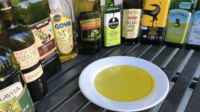
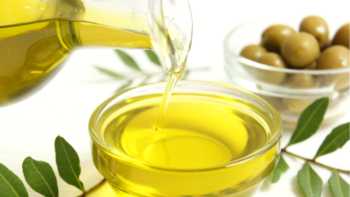
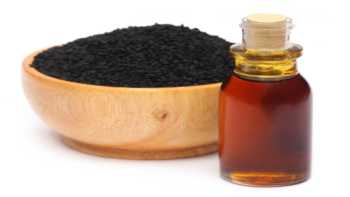

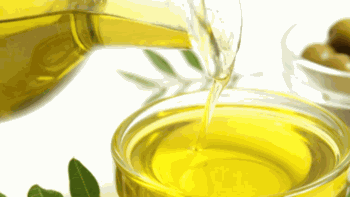






Submit your comment
This feature is restricted to active members.
Join now to add comments and get all member benefits, including over 1,400 reviews.
Join NowAlready a member? Sign in here.